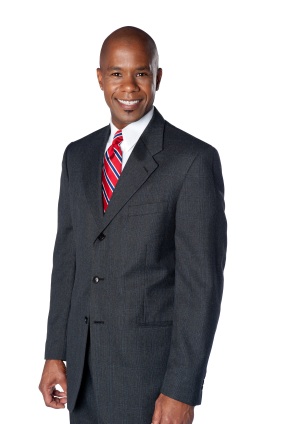Your Appearance Counts For More Than You Think!
A crisp white shirt or blouse, razor sharp creases and a stylish men’s or women’s suit screams that “I am the professional”. Of course it does not need to be a suit for ladies, but business wear is something you can ‘feel’. It is your uniform…don’t abandon it.
_____________________
The title of this would make you think I am going to write on what you should wear, but that is not the case, on second thought, maybe we will cover it in a future post.
I will, however, cover two points that many of you are already aware of. I want to share a view that can help you increase your effectiveness.
As a Black sales professional, your image and the persona that you are working to build are very much subject to your last encounter with your client, especially a new one. With that in mind, always look your best.
To Be or Not To Be … Casual?
As a sales professional, when the rest of the world dresses down for casual day, you have your opportunity to stand out as a sales professional.
Whether it is casual Fridays, or “casual dress” office environments, many operations began doing it In the 90s and it is widespread now.
As comfortable as it is, I would like to convince Black sales professionals not to do it. Here is my reasoning:
- As a sales professional, when the rest of the world dresses down for casual day, you set yourself apart as a sales professional. Sales professionals look the part.
- In the eyes of your clients you want to stand out as an individual who treasures their business relationship and has something to special to deliver. Dressing down indicates that you need comfort more than you need to display professionalism. Don’t be suckered into it, be the consummate professional.
- When you are in casual mode on casual Friday, or in an office casual setting, it makes the rest of your day, casual. Meeting with a client to solve an unforeseen problem, or responding to that potential “call-in” is not possible, unless you plan to take “casual” with you everywhere.
- To your clients, if you are casual, what makes you different from the next sales professional? This is when you show your best. Strengthen your persona!
Be the best-looking sales professional out there. Whether male or female if your business garb is your “uniform”, then do it in the way that makes you stand out. This is especially the case when your own office is casual. Don’t let yourself fall into that mode. Everyone in your office is not in the same position as you, so they will dress position appropriate for their job, and you need to dress for customer contact.
I believe that any sales professional, who is responsible for being on client visits or potentially greeting clients when they come to your company’s, office should be dressed in attractive business clothing. For the type of work you do, you want the customer to recognize you as a professional who represents yourself and your company as a professions well emblazoned in their mind.
their mind.
Always Look Your Best
During my tenure as a regional sales manager many years ago I was interviewing a sales candidate that was being considered for employment by one of my field sales managers. The objective of having the Regional Sales Manager interview the Field Sales Manager’s prospective hires was to put another set of eyes and ears to it. On this morning I met a candidate who had received high marks from the interviewing manager.
When I walked in the interview room, I met a candidate who we would pay a salary and bonus as well as a possibility of inheriting some significant customers. Immediately upon introduction I noticed obvious grease stains on the candidates pants as well as frayed collar on his shirt. It frankly looked bad.
The interview was better than average, and there were many solid points that the prospective sales representative offered up that made me think that I might be able to endorse the sales manager’s selection. That is, if issues regarding appearance were not so lightly regarded by this candidate.
If the candidate was that neglectful when putting his best foot forward in an effort to get the job, how was he going to look when visiting one of our customers? Although I probably don’t need to say it, he did not get the job.
Think About It
A testament to this will be when you exit an important customer’s office into the waiting room to say your farewells and see your competitors in some bad “Christmas” sweaters and deck shoes waiting to see your customer. Even the janitor will be able to tell you who looks more professional.
Always look your best! Be impeccable, it’s your image.
We would love your comments.
 August 23, 2012
|
Posted by Admin9!
August 23, 2012
|
Posted by Admin9!

 Categories:
Categories:  Tags:
Tags: 

Your Comments